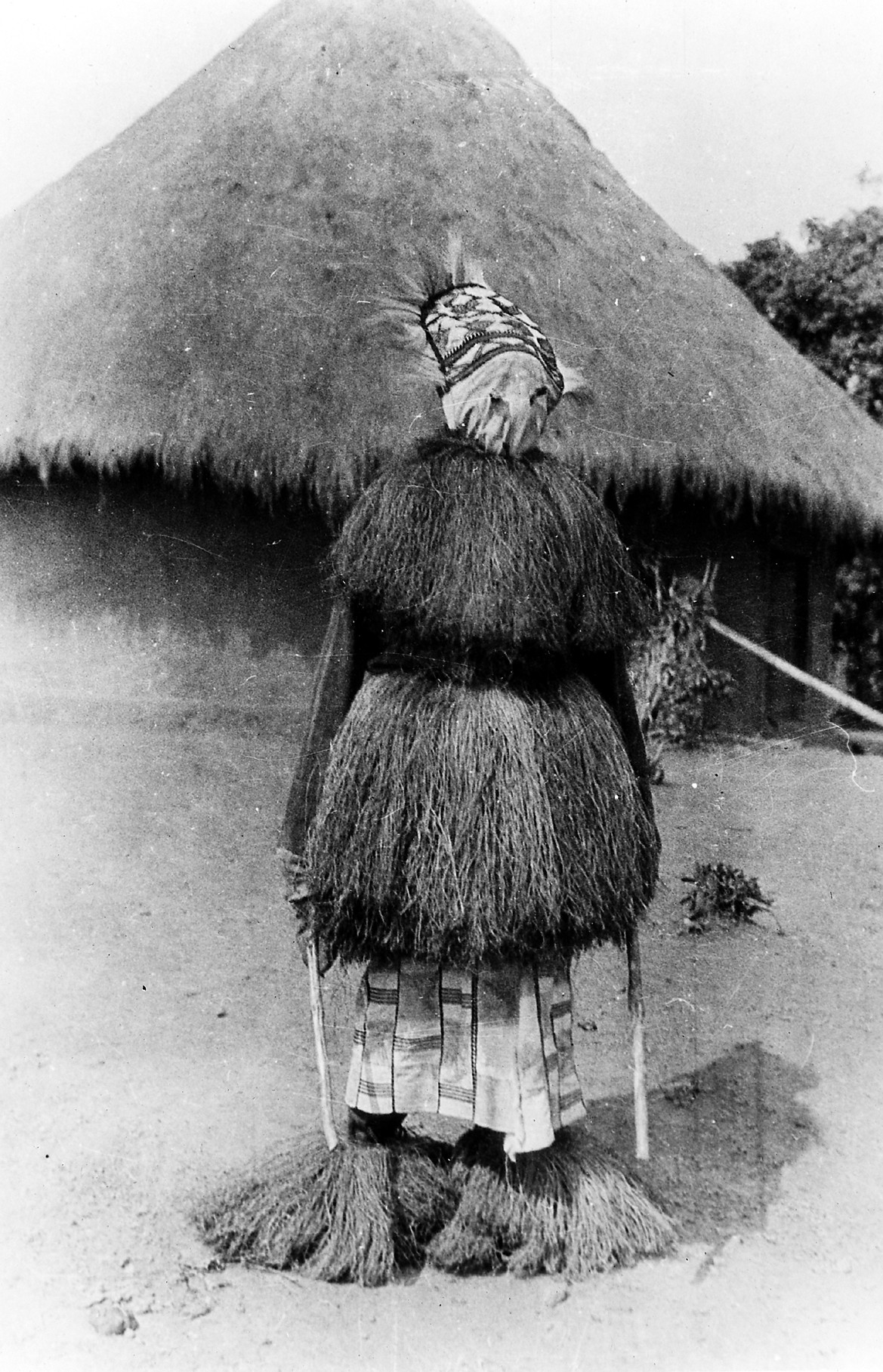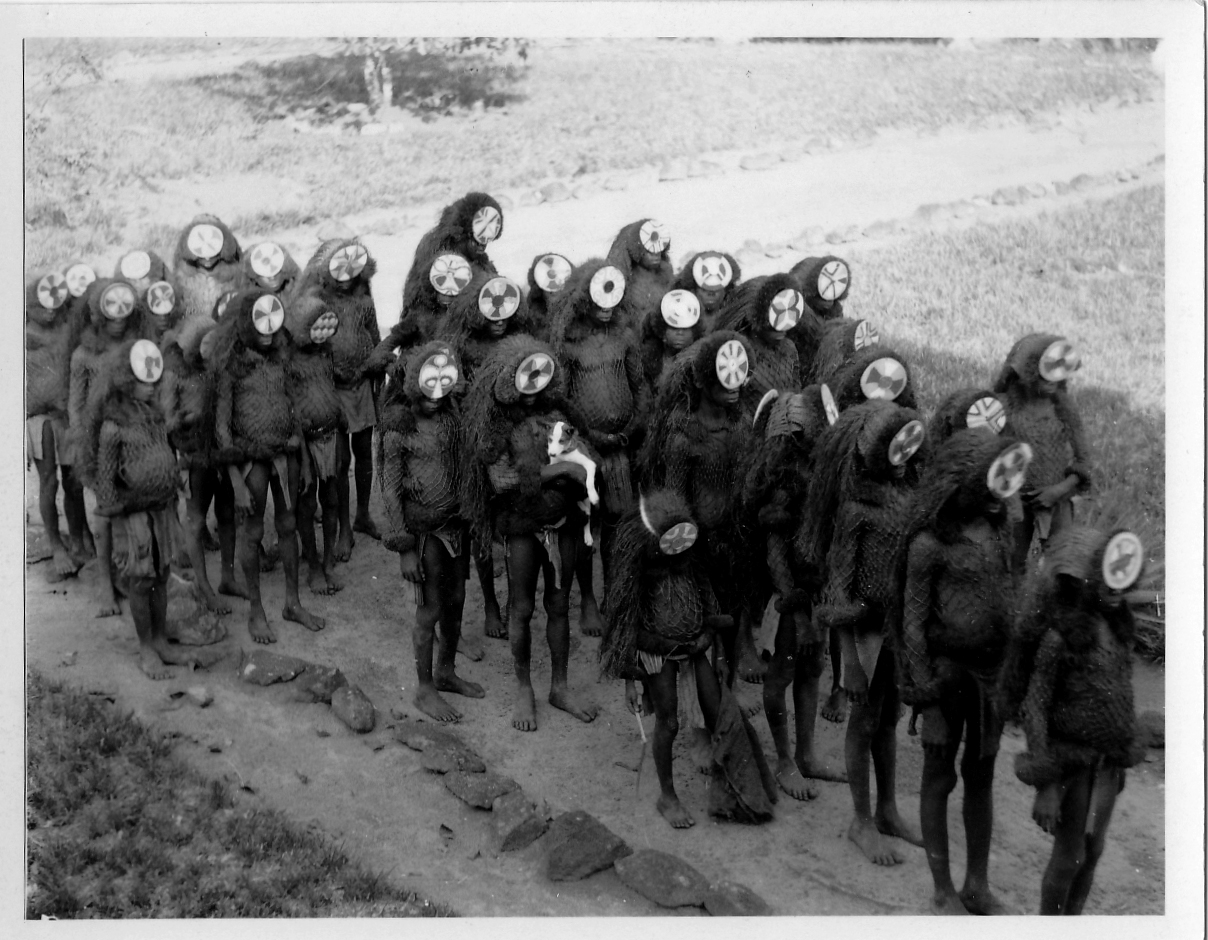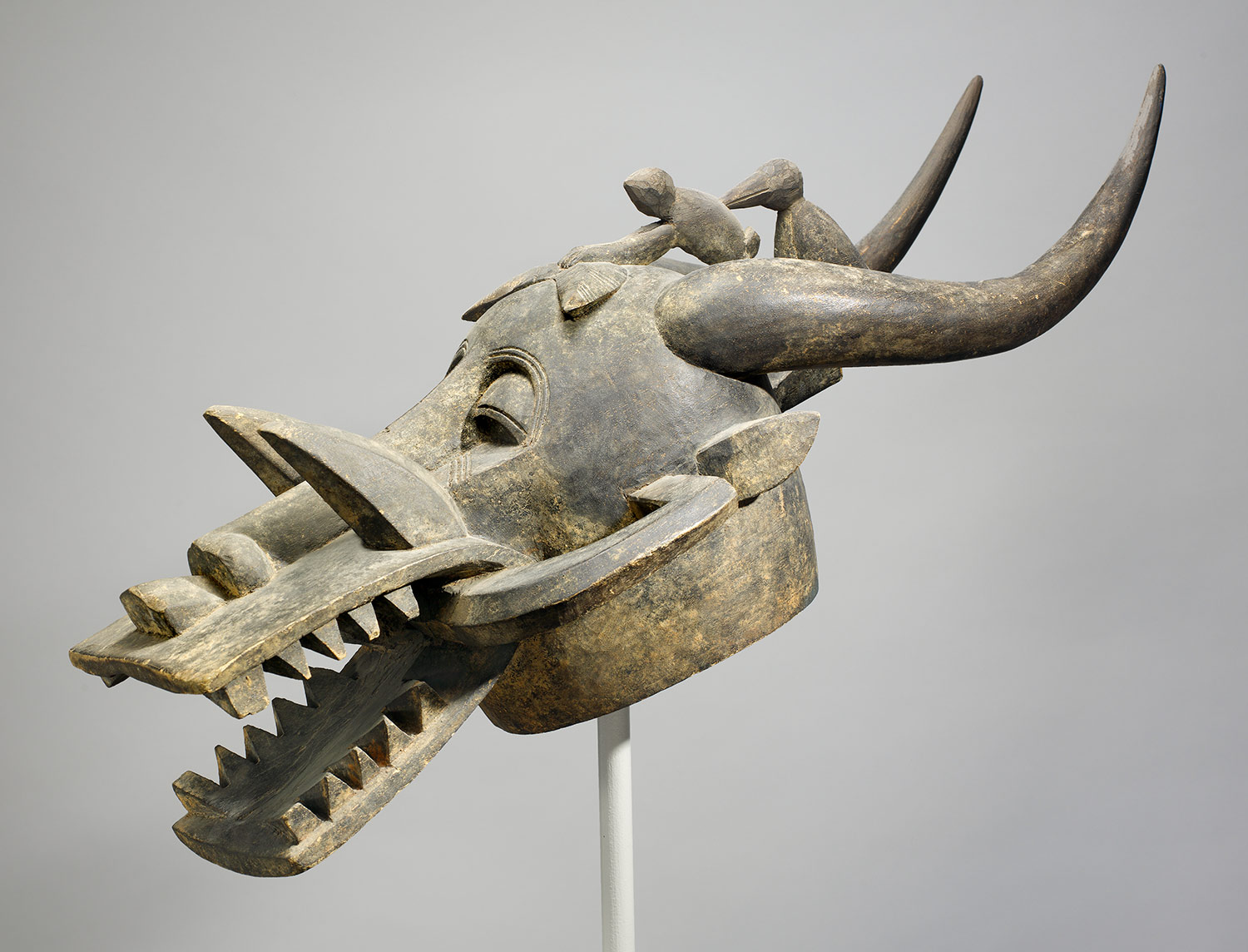Larry Lobster
/-_-\
The Poro, or Purrah or Purroh, is a men's secret society in Sierra Leone, Liberia, Guinea and the Ivory Coast.

Only males are admitted to its ranks. The Poro society was part of the culture introduced by Mande people, migrants to the region as early as 1000 AD.
Two affiliated and secret associations exist in Sierra Leone, the Yassi and the Bundu. The first is nominally reserved for females, but members of the Poro are admitted to certain ceremonies. All the female members of the Yassi must be also members of the Bundu, which is strictly reserved to women. In Liberia, the female equivalent of the Poro is the Sande society.
Of the three, the Poro is by far the most important. The entire native population is governed by its code of laws. It primarily represents a type of fraternal society to which even infants are temporarily admitted. The ceremony for them consists of carrying them into the Poro bush and out again.
There are also religious and civil aspects of the Poro. Under the former, boys join it at puberty in a rite of passage. Under its civil aspects, the society serves as a kind of native governing body, making laws, deciding on war and peace, etc.


DISTRIBUTION

http://en.wikipedia.org/wiki/Poro
http://www.britannica.com/EBchecked/topic/470652/Poro
http://www.metmuseum.org/toah/hd/poro/hd_poro.htm

Only males are admitted to its ranks. The Poro society was part of the culture introduced by Mande people, migrants to the region as early as 1000 AD.
Two affiliated and secret associations exist in Sierra Leone, the Yassi and the Bundu. The first is nominally reserved for females, but members of the Poro are admitted to certain ceremonies. All the female members of the Yassi must be also members of the Bundu, which is strictly reserved to women. In Liberia, the female equivalent of the Poro is the Sande society.
Of the three, the Poro is by far the most important. The entire native population is governed by its code of laws. It primarily represents a type of fraternal society to which even infants are temporarily admitted. The ceremony for them consists of carrying them into the Poro bush and out again.
There are also religious and civil aspects of the Poro. Under the former, boys join it at puberty in a rite of passage. Under its civil aspects, the society serves as a kind of native governing body, making laws, deciding on war and peace, etc.


DISTRIBUTION
- Kpelle
Kpelle
The poro and the sande are, respectively, male and female secret societies that meet in sacred groves in the forest. The poro, the more important of the organizations, is personified by the Great Masked Figure, or Grand Master, a person who only appears in public disguised by a mask, costume, and falsetto voice. He represents both the political power of important landowners... - Mende
Mende (people)
The chief is a secular leader only; ritual power is in the hands of the secretporo society. Membership in the poro is necessary for anyone in a position of authority. In addition to enforcing Mende law, the poro and other secret societies educate boys and girls, regulate sexual conduct, and concern themselves with agricultural fertility and military training; men masked as... - Temne
Temne
The chief’s office is partly religious, and he is sometimes a member of theragbenle and poro male secret societies. The ragbenle is responsible for curing certain diseases and performing ceremonies to promote the growth of crops. The women’s ... - Vai
Vai
Vai behaviour in all aspects of life is strongly influenced by secret societies known as poro and sande—for men and women, respectively. The modern Vai are largely Islāmized. Formerly known as slave traders, the Vai now rely on farming and fishing; many work in government or for foreign companies. Their crafts are well developed, especially weaving and goldsmithing

http://en.wikipedia.org/wiki/Poro
http://www.britannica.com/EBchecked/topic/470652/Poro
http://www.metmuseum.org/toah/hd/poro/hd_poro.htm




















